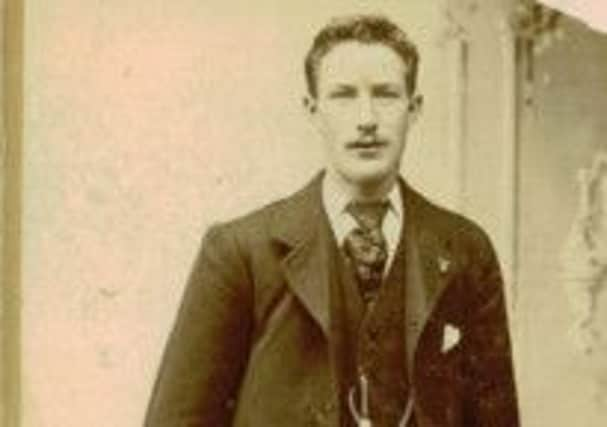Museum highlights poignant tales of sacrifice ‘In Memory of the Fallen’


About 2,050 men left Horsham to serve in the forces and 359 gave their lives.
The new temporary exhibition at Horsham Museum and Art Gallery in the Causeway - ‘In Memory of the Fallen’ - tells the stories of some of those men. It runs throughout November.
Advertisement
Hide AdAdvertisement
Hide AdUsing original war diaries, newspaper accounts and family papers, museum volunteer Gary Cooper built up a picture of the men named on the Horsham war memorial.
Gary’s book, Horsham’s Heroes of the Great War, was published by the Friends of Horsham Museum in 2009.
The exhibition ‘In Memory of the Fallen’ draws on Gary’s book, and through contemporary local photographs and illustrations features, it reveals the experiences of Horsham sons, brothers and husbands as they were caught up in one of the defining events of the early twentieth century.
For an opportunity to look beyond the names on the town’s war memorial at the lives of those sacrificed in the ‘war to end all wars’ visit Horsham District Council’s Horsham Museum and Art Gallery in the Causeway this November.
Advertisement
Hide AdAdvertisement
Hide Ad‘In Memory of the Fallen’ is now open and closes on November 29.
The story of Roland Luff is among those featured in the exhibition.
Not all the British casualties of the Great War were caused by enemy action. Many servicemen died of natural causes, accidents and disease, or fell victim to the rigours of a foreign clime.
32341 Private Roland Luff succumbed to the latter. He was last stationed with his battalion in Delhi but on Tuesday the 17th June 1919 he died of heat stroke in Delhi Cantonment Military Hospital at the age of 44, far from the temperate climate of his Sussex home town.
Advertisement
Hide AdAdvertisement
Hide AdHe lies buried in the Delhi War Cemetery, Plot 9, Row A, Grave 18, which is situated on the outskirts of the Delhi Cantonment in India.
Heat exhaustion was one among many ills that could strike down British troops serving in India at that time.
Roland Luff had been born in 1875 at Lurgashall, Sussex, as was his sister Lucy, two years his senior, and his younger brother Willie, two years his junior.
They were the children of Alfred Luff and his wife Elizabeth Luff (nee Tarman) who were married at Lurgashall Parish Church on the 22nd April 1870 and lived at Whites Green, Lurgashall.
Advertisement
Hide AdAdvertisement
Hide AdLater the family had moved to Horsham where Roland’s young brother, Alfred George, was born in 1896 and baptised on the 1st November in the same year at the parish church of St Mary the Virgin. The parents’ address in 1919 is recorded as 39 Clarence Road.
After Roland had married Caroline Luff they continued to live in the town at 42 Springfield Road. In 1913 the couple were living at 42 Trafalgar Road and had two daughters.
Roland was one of the middle aged men who volunteered to serve in the armed forces early in the Great War before the introduction of compulsory conscription, and eventually joined the 1st Garrison Battalion of the Bedford Regiment, a wartime unit formed at Bedford in December 1915.
After basic training in soldiering and the requirements of garrison duties he sailed for India in February 1916, never to return.
Advertisement
Hide AdAdvertisement
Hide AdIn an affectionate letter home that he wrote to his wife Caroline on the 23rd January 1919, Roland said he was in good health and hoped that she and the children were also well.
He had written some items that were of great interest that he wished to relate to his wife but the censor blacked out the relevant passage to make it unreadable.
Roland had been away three years in India and obviously missed his small family greatly; he wrote that he was expecting soon to return home and to his family.
He died less than three months after the letter was written, never having seen his wife and children since leaving England.